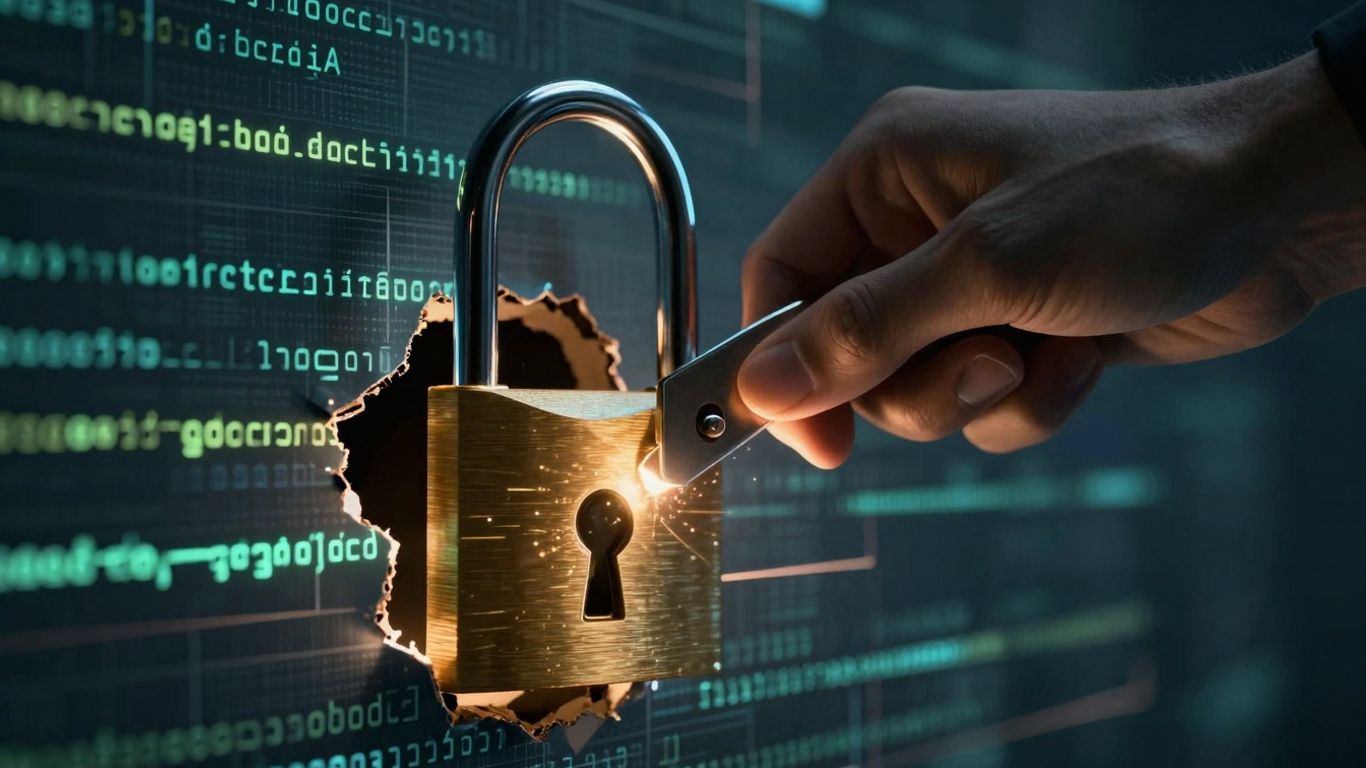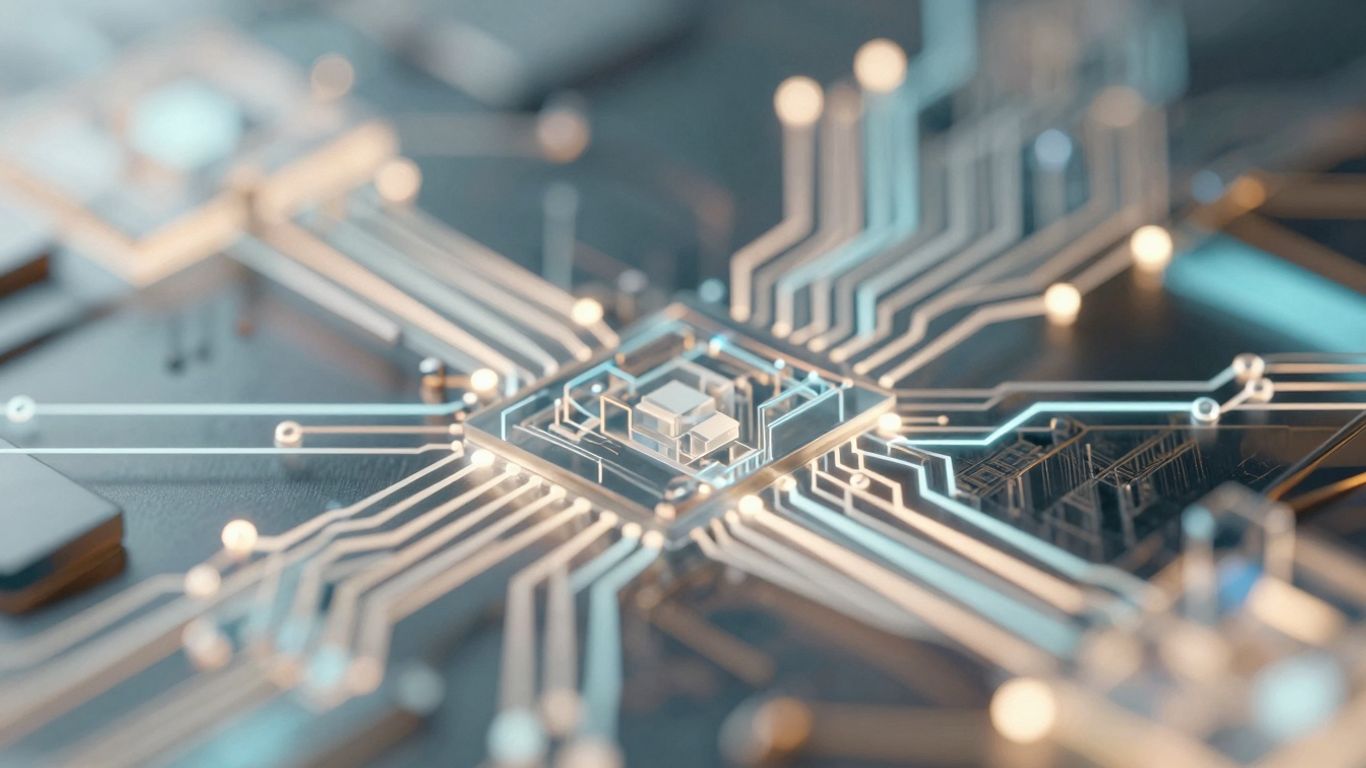[ newsletter ]
Stay ahead of Web3 threats—subscribe to our newsletter for the latest in blockchain security insights and updates.
Thank you! Your submission has been received!
Oops! Something went wrong. Please try again.
Explore how decentralized security solutions enhance blockchain resilience, transparency, and user control.





In today's digital world, security is more important than ever, especially when it comes to blockchain technology. Decentralized security solutions are proving to be the future of blockchain, offering new ways to protect data and enhance trust among users. This article will explore how these solutions work and why they are essential for the future of secure digital interactions.
Decentralized security solutions are crucial for the future of blockchain technology. They help create a safer environment for users and their data. By distributing control, these solutions enhance security and trust.
Decentralized systems promote transparency, allowing users to verify transactions independently. This transparency builds trust among users, as they can see and audit the processes involved. Key points include:
One of the main advantages of decentralized security is the reduction of single points of failure. In traditional systems, if one part fails, the whole system can collapse. In decentralized systems:
Decentralized security solutions give users more control over their personal data. Instead of relying on a central authority, users can manage their information directly. This empowerment leads to:
In the evolving landscape of blockchain, decentralized security is not just a trend; it is essential for ensuring user safety and trust in the system.
By leveraging these decentralized solutions, blockchain technology can provide a more secure and trustworthy environment for all users.
Decentralized security solutions offer several advantages that make them essential for the future of blockchain technology. These benefits enhance the overall security and trustworthiness of blockchain systems.
In the evolving landscape of blockchain, decentralized security solutions are not just beneficial; they are essential for ensuring user safety and trust in the system.
Blockchain technology is the backbone of decentralized security. It ensures that all transactions are recorded in a secure and transparent manner. This technology helps prevent unauthorized access and fraud. Key features include:
Artificial Intelligence (AI) is becoming essential in identifying and responding to security threats. AI can analyze vast amounts of data quickly, spotting patterns that may indicate a security breach. Some benefits include:
Biometric systems, such as fingerprint and facial recognition, are gaining traction in decentralized security. They provide a higher level of security by ensuring that only authorized users can access sensitive information. Key points include:
The integration of these technologies is crucial for building a secure and resilient blockchain ecosystem. By leveraging advanced tools, we can enhance user trust and protect sensitive data effectively.

One of the main challenges in decentralized security is scalability. As more users join the network, it can become slower and less efficient. To tackle this, developers are working on solutions like:
Decentralized systems often face regulatory challenges. Governments may not fully understand how these systems work, leading to confusion. Solutions include:
Many users are still unfamiliar with decentralized security. This lack of knowledge can hinder adoption. To improve this:
Addressing these challenges is crucial for the success of decentralized security solutions. By focusing on scalability, regulatory compliance, and user education, we can build a more secure and trustworthy blockchain environment.
In summary, while there are significant challenges in implementing decentralized security, there are also effective solutions that can help overcome these obstacles. By working together, we can create a safer digital future.
The future of decentralized security is closely linked to new technologies. Artificial intelligence (AI) will play a big role in spotting threats faster and more accurately. By looking at patterns, AI can find unusual activities that might mean a security problem. This is important for keeping blockchain systems safe.
Automated audits will soon be a normal part of blockchain security. These audits will:
As blockchain grows, so does the need for financial safety. New insurance products will be created to cover losses from security breaches. This will give users peace of mind, knowing they have a backup plan if something goes wrong.
The combination of AI and automated audits will change how we think about blockchain security, making it stronger and more reliable.
In summary, the future of decentralized security will focus on using advanced technologies to improve safety and protect users. Ignoring these trends could lead to serious risks for everyone involved.
Decentralized security solutions have shown great promise through community-driven initiatives. These projects often rely on the collective efforts of users to enhance security. For example, many blockchain networks utilize community audits to identify vulnerabilities. This approach not only improves security but also fosters a sense of ownership among users.
In the world of decentralized finance (DeFi), several projects have successfully implemented decentralized security measures. Here are a few notable examples:
From these case studies, several key lessons emerge:
The success of decentralized security solutions lies in their ability to adapt and evolve through community involvement and innovative technologies.
By embracing these principles, blockchain projects can create a more secure environment for all users, ultimately leading to a more resilient ecosystem.

Keeping your software updated is very important. Regular updates help fix security holes that hackers might try to exploit. Here are some key points to remember:
Using multi-factor authentication (MFA) adds an extra layer of security. This means you need more than just a password to access your accounts. Here are some tips:
Monitoring your systems continuously helps catch any suspicious activity early. Here’s how to do it:
Decentralized identity solutions can greatly enhance your security by giving you more control over your data.
By following these best practices, you can better protect your decentralized security solutions and ensure a safer experience in the blockchain space.
In summary, decentralized security solutions are shaping the future of blockchain technology. By spreading out control and data, these systems make it harder for hackers to attack. This not only boosts security but also builds trust among users. As we move forward, embracing these decentralized methods will be key for creating safer and more reliable applications in the blockchain world.
Decentralized security solutions are systems that use blockchain technology to protect data and transactions without a central authority. They spread control across many users instead of relying on one central point.
These solutions increase trust by allowing everyone to see and verify transactions. This transparency helps to ensure that no one can cheat or manipulate the system.
Some benefits include better protection against attacks, improved privacy for users, and lower costs for security measures.
Key technologies include blockchain, artificial intelligence for spotting threats, and biometric methods for identity verification.
Challenges include making sure systems can handle lots of users, meeting rules and regulations, and helping people understand how to use them.
The future may see more integration with new technologies, regular automated checks for security, and insurance options to protect against losses.


